Beyond Calories: The Science of Fat Supplements for Superior Horse Health

Fat Supplements in Equine Diets: Boosting Horse Health Naturally
As horse owners continue to seek optimal nutrition solutions for their equine partners, fat supplementation in horse diets is an increasingly popular strategy for various reasons, including enhanced calorie density, improved coat, and hoof condition, and as a substitute energy source that can decrease the reliance on carbohydrates. However, not all fat sources are created equal, and choosing the right type can significantly influence a horse's health and performance. Want to learn more? Continue reading to explore several fat supplements and discuss their benefits, limitations, and suitability for different kinds of horses.
Is corn oil safe for horses?
Corn oil is a traditional fat supplement for horses, appreciated for its high-calorie content and palatability. It's predominantly composed of linoleic acid, an omega-6 fatty acid. While it's effective for adding calories to the diet, corn oil can skew the balance of omega-6 to omega-3 fatty acids, potentially leading to inflammatory processes if not balanced with omega-3 sources.
Can canola oil be fed to horses?
Canola oil is a well-rounded option as it has a more balanced omega-6 to omega-3 ratio than corn oil. It is also rich in monounsaturated fats and low in saturated fats, making it a heart-healthy option for horses that need to manage weight or those with metabolic issues.
Is soy oil good for horses?
Soy oil is another common choice high in calories and rich in omega-6 fatty acids. Like corn oil, its high omega-6 content requires balancing with omega-3 fats, but it remains a favorite for its palatability and the smooth, shiny coat it can help produce.
Why choose coconut oil for your horse?
Coconut oil is unique because it contains medium-chain triglycerides (MCTs), metabolized differently from other fats, and provides quick energy. It's beneficial for horses needing readily accessible energy, such as endurance horses. However, consideration should be given to the high saturated fats when formulating the diet.
Why is flaxseed healthy for horses?
Flaxseed is one of the superior options for equine fat supplementation. It's high in alpha-linolenic acid, an omega-3 fatty acid, which helps balance the omega-6 heavy fats commonly found in equine diets. Flaxseed supports a healthy coat and skin, promotes an anti-inflammatory response, and supports immune function.
Why is Hemp Seed a good choice for horses?
Hemp seed oil is rich in omega-3 and omega-6 fatty acids, maintaining a desirable ratio that promotes health without the risk of inflammation associated with higher omega-6 oils. Another benefit is its content of gamma-linolenic acid, which can support skin health and provide anti-inflammatory benefits.
Is sunflower oil beneficial to horses?
Sunflower oil, particularly the high-oleic variety, is high in omega-9 fatty acids (which help regulate hormones) but low in omega-3. While it can improve coat condition and palatability of feeds like corn and soy oils, balancing with omega-3 sources will prevent a skew toward inflammatory pathways.
Why feed wheat germ oil to your horse?
Wheat germ oil is a rich source of vitamin E, an essential antioxidant that supports immune function and overall health in horses. It also contains a favorable mix of omega-6 and omega-3 fatty acids, although it leans more towards omega-6. The high vitamin E content makes it particularly beneficial for horses in intense training or those needing additional antioxidant support to prevent muscle soreness and promote recovery.
Is rice bran good for your horse?
Rice bran is a high-fat supplement rich in calories and contains vitamins, minerals, and antioxidants. It is noted for its gamma-oryzanol content, which supports muscle development and hormonal balance. Rice bran is an excellent energy source that is digestible and palatable, though due to its high-fat content, it should be stabilized to prevent rancidity. It's also worth noting that rice bran can be high in phosphorus, which may require balancing with additional calcium in the diet.
What are the benefits of camelina oil for horses?
Camelina oil is relatively new to the equine supplement market but is gaining attention due to its impressive omega-3 fatty acids and vitamin E profile. It provides a more balanced omega-3 to omega-6 ratio than many other oils used in horse diets, which can help reduce inflammation and support overall health. Camelina oil is also known for its stability and shelf life, resisting rancidity better than other vegetable oils.
Can horses have peanut oil?
Peanut oil is another high-calorie, palatable fat source for horses. It is primarily composed of monounsaturated fats with a moderate amount of polyunsaturated fats. While not as rich in omega-3 fatty acids as some other oils, it's still beneficial for enhancing the calorie content of the diet and improving coat condition. Owners should be cautious, however, as there is a risk of allergic reactions in horses sensitive to peanuts, although this is relatively rare.
Fat supplementation is a dynamic and essential component of equine nutrition, offering numerous benefits, from improved energy management to enhanced coat condition. As explored in this blog post, horse owners have their choice of fat sources—each with unique properties and nutritional profiles—enabling tailored dietary strategies that cater to the specific needs of individual horses.
Choosing the appropriate type of fat supplement involves a careful balance of fatty acids and understanding each fat's unique impact on horse health and performance. Each option presents opportunities for optimizing equine diets, from the available energy provided by coconut oil to the balanced omega-3 and omega-6 ratios in camelina and hemp seed oils. Furthermore, special considerations like the antioxidant properties of wheat germ oil or the unique needs of horses sensitive to certain fats underscore the importance of a thoughtful, informed approach to dietary planning.
Ultimately, the goal of fat supplementation should be to enhance the overall diet while supporting the horse's health, performance, and well-being. Whether managing a high-performance athlete or maintaining the condition of a beloved companion, incorporating the correct type of fat in the right amounts can significantly contribute to a horse's nutritional harmony and quality of life. Horse owners are encouraged to consult with equine nutritionists or veterinarians to design a diet that not only meets but exceeds the dietary demands of their equine partners, ensuring they thrive in all aspects of their lives.





Leave a comment